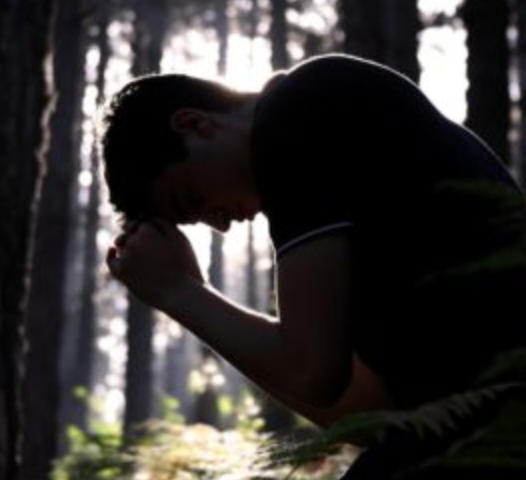Daily Practices to Address Anxiety

A Personal Crisis: National and Global Increase in Anxiety
Last month, a panel appointed by the Department of Health and Human Services recommended screening for anxiety for all adults under age 65. Inflation, war and violence, political polarization and uncertainty, COVID-related stressors, and other precursors highlight the need for early detection and treatment of anxiety symptoms and disorders. There is also a historic justice dimension to health-related anxiety concerns because people of color are potentially subject to diagnosis and treatment disparities.
Self-Awareness of Anxiety
In this disturbing time related to non-clinical “commonplace” anxiety, how can we start to cope? Step one is self-awareness. This means taking a hard look at whether one is burdened with a sense of extreme nervousness, uncertainty, and tension, or worse, panic given current cultural deformities and extremes. In addition to an anxiety self-audit of sorts, we must be honest in terms of consequences. Are we distracted to the point where we are losing hope, joy, or a sense of purpose? Is anxiety affecting our daily performance in work and other activities? Is it robbing us of opportunity, attending to our priorities, and freedom? Is anxiety negatively affecting our relationships with family and friends? We often do not consider it, but being an exceptionally good friend to ourselves as well as others is a fundamental component of personal wellness.
Daily Practices
If we are seriously struggling with anxiety, then we should seek medical attention from an appropriate health provider. In less extreme but impactful circumstances, daily practices can help us. Anxiety is akin to worry related to something bad that might happen instead of focusing on and making good choices about what is happening right now – today – in our lives. Effective, practical daily routines can enable us to pay full attention to our actions in the moment, avoid fear inhibiting us from our personal aspirations, and identify and actively implement our priorities in life. Jesus is a stellar model for us. We learn in Mark 1:35-38 and Luke 4:42 that Jesus often went off by himself, particularly as a first of the day practice, for a time of quiet and prayerful reflection and preparation for his work each day. If Jesus needed such preparation during his life, then such a daily practice is potentially beneficial to everyone. A first-of-the-day preparatory time for daily focus and actualization of personal priorities can reduce anxiety as well as enable us to live our lives in the fullest and most meaningful fashion.
Daily Practices Should be Personalized and Flexible
What relaxes you and helps you stay attentive, fully aware, and moving ahead with priorities during the day? This varies for us individually, but common elements can include quiet time, prayerful meditation, being still, an exercise element, and reading something meaningful that motivates us toward living accordingly (e.g., scripture or a self-help reading). Dogs, coffee or tea, journaling, and other components might help us. The idea is to establish a routine with flexibility to alter it that helps us be less anxious, most focused, calmer, happier, and productive, where the primary thing we “see” and orient our actions toward is the day at hand, including the task or person in front of us each moment of the day.
A Simple But Profound and Diligent Art
Establishing daily practices toward more relaxed and attentive daily living might sound simplistic. On one level, setting the right tone as a matter of first intention each day to be more focused and aware is profoundly simple conceptually. In practice, however, demanding work, experimentation, and commitment over time are what turn our morning preparatory time into an art. We practice it over time to result in authentic change away from anxious fear and inactivity and into the light of authentically meaningful living that matters to us and others around us every day.
Routine and the Joy of Newness
Among the benefits of a daily practice to better cope with day to day living in our current culture is the profound sense of newness and hope that getting up each day to a time of relaxation, stillness of mind, and focus provides. Further, when we find ourselves getting anxious or dispersed in thought or action during our day, recalling our morning routine can help. Vividly returning to our sense of calm, accompanied with deep, easy breathing or a walk around the block or a park can “call us back” to our center and core of living sequentially through our lives, one day and step at a time and with the hopeful result of less anxiety.
The Gift of Life and Choice
Life is a gift, one day at a time. We are free to choose our path, attitudes, and actions. Daily routine practices in preparation for each day can enhance our ability to mitigate anxiety and live in a meaningful and hope-filled manner.
~~~~~~~~~~~~~~~~~~~~~~~~~~~~~

